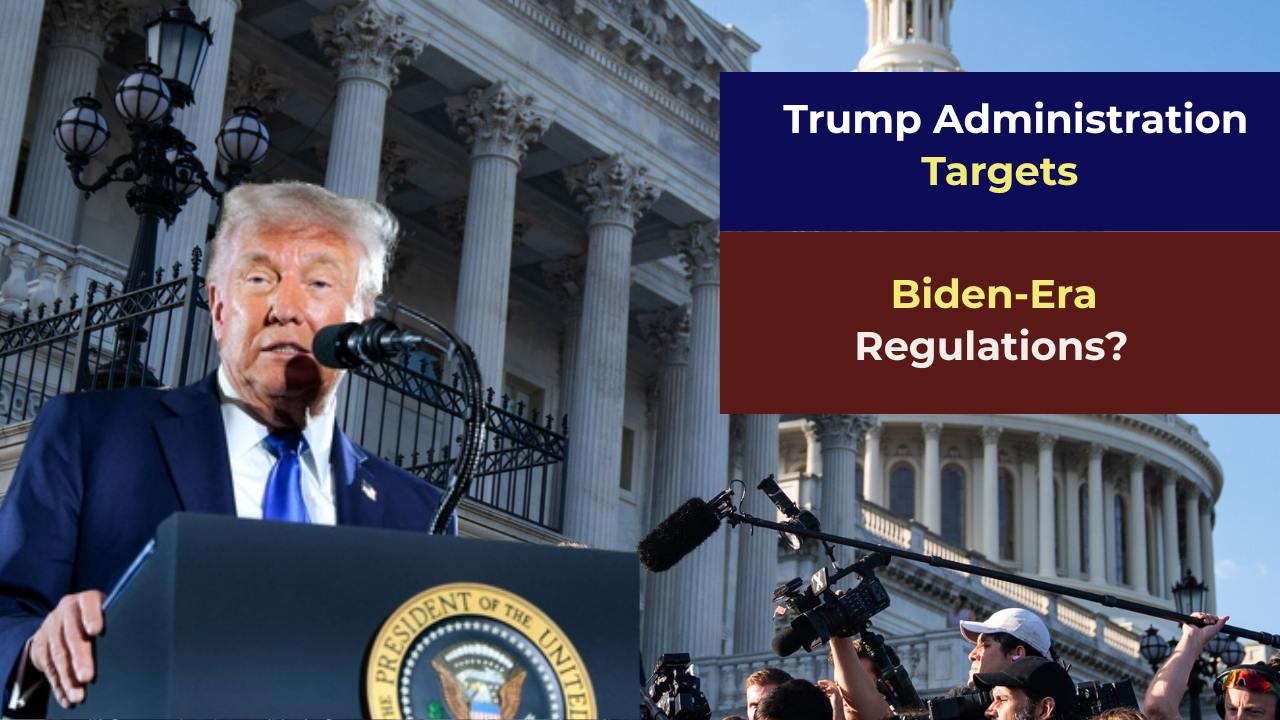In a concerted effort to reverse the regulatory landscape shaped during President Joe Biden’s tenure, the Trump administration has launched a broad campaign to dismantle what it sees as excessive federal oversight. Deputy Treasury Secretary Michael Faulkender emphasized that the administration is committed to lifting regulatory burdens that officials claim have slowed economic growth and innovation.
Financial Sector Reforms
Treasury Secretary Scott Bessent has taken the lead in overhauling financial regulations. Speaking at the Economic Club of New York, Bessent criticized the Biden administration’s approach, arguing that its rules “missed material risk, stymied growth, and squashed innovation.”
Bessent announced plans to reduce financial regulations for banks to allow them to more effectively support the economy, particularly through increased lending and investment.
OCC and Cryptocurrency Policy
Rodney E. Hood, now Acting Comptroller of the Currency, has overseen a rollback in environmental and crypto-related regulatory participation. The Office of the Comptroller of the Currency (OCC) formally exited the Network of Central Banks and Supervisors for Greening the Financial System, arguing that climate issues lie beyond its legal scope. The OCC also issued Interpretive Letter 1183, affirming that national banks can legally engage in a broad range of cryptocurrency activities.
OCC Website
Overhaul of Consumer Protection
The Consumer Financial Protection Bureau (CFPB), formed after the 2008 financial crisis, has seen a dramatic change. Treasury Secretary Bessent was named acting director after President Trump dismissed Rohit Chopra. Within hours of taking over, Bessent froze all investigations, enforcement actions, and communications from the agency.
Economic Times Report
This aligns with the administration’s broader effort to scale back what it calls regulatory overreach.
Creation of Department of Government Efficiency (DOGE)
One of the more unconventional moves was the creation of the Department of Government Efficiency (DOGE), led by entrepreneur Elon Musk. The department was tasked with cutting federal spending and reducing bureaucracy.
By February 2025, around 10,000 federal employees were reportedly dismissed, mostly from probationary roles. DOGE claimed $160 billion in savings, though independent reviews suggest the net result may only be $25 billion due to accounting issues and hidden costs.
Trade and Tariff Policies
In international trade, the Trump administration reinstated aggressive tariffs on imports from China, Mexico, and Canada. Officials argue these tariffs will generate revenue to fund tax relief and protect domestic industries.
However, economists and industry leaders warn that such tariffs could raise consumer prices and provoke retaliatory trade measures.
Reuters
Wall Street Journal
Environmental and Energy Rollbacks
The administration has also reversed key environmental regulations. Measures include:
- Rejoining coal and oil production projects
- Lifting restrictions on deep-sea mining
- Exiting the Paris Agreement on climate change
Supporters claim these changes promote energy independence and job growth. Critics warn of long-term environmental damage.
Cryptocurrency and Financial Innovation
In support of digital finance, the administration has taken a hands-off approach to cryptocurrency regulation. The Securities and Exchange Commission (SEC) dropped lawsuits against major exchanges and signaled an openness to blockchain innovation.
This shift is intended to make the U.S. a global hub for financial technology, though experts caution that lax oversight could increase risk and fraud.
Conclusion
The Trump administration’s deregulatory campaign marks a sharp shift in federal policy, aiming to reduce government involvement across sectors. While proponents argue it frees businesses and encourages growth, critics raise concerns about potential threats to financial stability, environmental protection, and consumer rights.
As these policies unfold, the full consequences for the U.S. economy and society remain to be seen.


